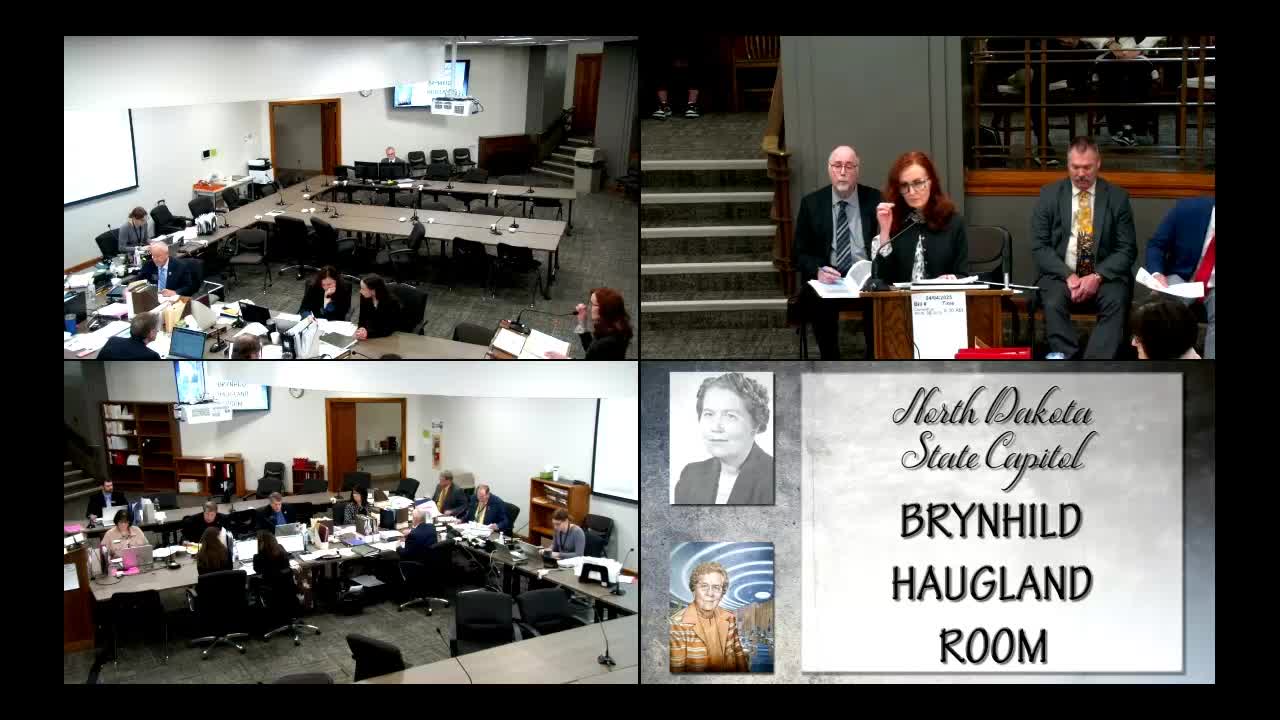Appropriations panel agrees to split $6 million in SIF money for enhanced oil-recovery work and salt-cavern business case
Get AI-powered insights, summaries, and transcripts
Subscribe
Summary
The House Appropriations Government Operations division approved a plan to reallocate previously appropriated State Investment Fund (SIF) money: $4 million for an enhanced oil-recovery grant program and $2 million to the Energy and Environmental Research Center (EERC) to complete business-case analysis related to salt-cavern storage.
The House Appropriations Government Operations division discussed budget 04/2005 on the Industrial Commission and approved moving SIF money between line items to support enhanced oil-recovery work and further study of salt-cavern storage.
Committee members and agency staff told the panel the change is a reallocation within previously discussed funding. Committee Chairman Munson and Industrial Commission Executive Director Karen Tyler said $6 million of SIF money originally tied to salt-cavern work will be split: $4 million added into an enhanced oil-recovery grant program in section 10 of the worksheet and $2 million left with the Energy and Environmental Research Center (EERC) for business-case development related to salt caverns.
Why it matters: EERC officials and legislators said the salt-cavern work could attract industry investment — for petrochemical storage, propane peak storage or hydrogen — but commercial partners have not committed to drill or build caverns. EERC CEO Charles Garecki told the committee earlier drilling and core-sampling work showed promising subsurface salt but that the project still needs business-case analyses to attract private, multi‑million- or billion‑dollar investments.
What the committee discussed: Staff and legislators reviewed several spreadsheet corrections and reassignments in the Industrial Commission admin budget: an earlier erroneous transfer of roughly $581,000 that staff said resulted from miscalculated salaries, the conversion of one-time to ongoing operating funding for IT and rent ($50,000), and whether to include a previously agreed $400,000 item for transmission projects. Committee members recorded “ok” or asked staff to update the worksheet to reflect the $175,575 salary reallocation and the $500,000 adjustment discussed in the meeting.
Salt-cavern and enhanced oil-recovery details: Committee members asked EERC and industry representatives to explain what remained to be done. Garecki described prior work: a well was drilled and core samples collected; that effort cost more than originally budgeted and forced a scope reduction that removed business-case development. The remaining request for $2 million for business-case work would fund EERC technical staff and consultants to model specific industrial uses and recovery rates so private partners could judge the cost of construction and operation. The committee and EERC officials acknowledged the $2 million would not fund construction; it is meant to complete a front-end engineering/business-case effort to attract private partners.
Funding sources: The committee recorded that section 10 would transfer $4,000,000 from the State Energy Research Center Fund and $21,000,000 from the Oil and Gas Research Fund to an enhanced oil-recovery grant program (transferred amounts referenced on the worksheet). The $6,000,000 SIF item discussed will be split so $2,000,000 remains with EERC and $4,000,000 moves to enhanced oil recovery. Committee members asked staff to update worksheets to reflect those amounts and the resulting lower total in the section that rolls up SIF obligations.
Next steps and caveats: Members emphasized that the EERC business-case work must be technical and complete before the Legislature, or private partners, consider construction funding. Representative Bosch and others repeatedly asked whether industry partners (for example, Basin Electric or 1 Oak) would fund or co-fund the business-case work; Garecki said EERC has sought partners but needs the state's business-case work to attract industry capital. Committee members said they would treat the split as a finalized worksheet change for the House budget but acknowledged additional conversations and final statutory language would be needed in conference with the Senate.
Ending: Staff were directed to update the committee worksheet to reflect the agreed $4 million/$2 million split from SIF, correct the earlier salary-transfer error, and provide more detail on the enhanced oil-recovery grant and EERC business-case deliverables for later review.
